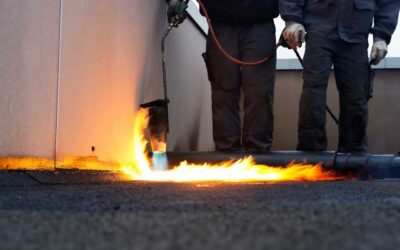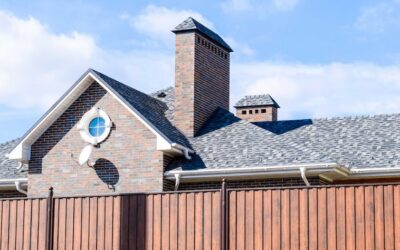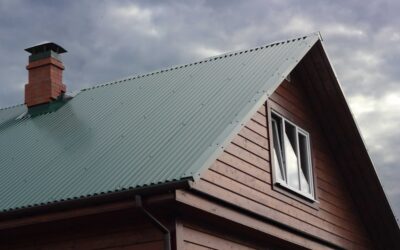The Ultimate Guide to Hiring a Commercial Roof Inspector
Maintaining a commercial roof is a critical aspect of protecting your business property. Whether you own an office building, warehouse, retail space, or industrial facility, the roof is your first line of defense against harsh weather, water damage, and structural issues. One of the most effective ways to protect your investment is by hiring a commercial roof inspector.
In this comprehensive guide, we’ll explore everything you need to know about commercial roof inspections, including the role of a roof inspector, the inspection process, common problems, benefits, costs, and how to choose the right professional for your commercial property.
What Is a Commercial Roof Inspector?
A commercial roof inspector is a licensed and trained professional who examines commercial roofing systems to assess their condition, identify potential issues, and recommend necessary repairs or maintenance. Unlike residential roof inspections, commercial roof inspections require specialized knowledge of various roofing materials, complex structures, and building codes.
Commercial roof inspectors are experts in systems like:
- Flat roofs
- Low-slope roofs
- Metal roofing
- Built-up roofing (BUR)
- TPO (thermoplastic polyolefin) and PVC roofing
- Modified bitumen roofs
Their goal is to provide a detailed assessment that helps building owners prevent costly damage, extend roof life, and maintain safety compliance.
Why You Need a Commercial Roof Inspector
Regular inspections by a qualified commercial roof inspector are essential for several reasons:
1. Prevent Costly Repairs
Small roof issues can escalate into major problems if left unchecked. Regular inspections allow early detection of leaks, membrane damage, or structural concerns, saving thousands in repair costs.
2. Extend Roof Lifespan
A commercial roof can last 15–30 years depending on its material and maintenance. Routine inspections ensure your roof stays in optimal condition, extending its useful life.
3. Ensure Safety and Compliance
Commercial roofs must comply with local building codes, fire regulations, and OSHA safety standards. Roof inspectors identify hazards such as loose materials, trip hazards, and weak spots that could compromise safety.
4. Support Insurance Claims
If your roof sustains storm or weather damage, a professional inspection report can support insurance claims and document the roof’s condition before and after damage.
5. Improve Energy Efficiency
Inspectors can assess roof insulation, reflective coatings, and ventilation systems, recommending improvements that reduce energy costs for heating and cooling.
Common Issues Found by Commercial Roof Inspectors
Commercial roof inspectors identify a wide range of problems. Some of the most common issues include:
1. Leaks and Water Damage
Water infiltration is one of the most damaging issues for commercial roofs. Inspectors check for pooling water, membrane damage, and leaks around drains, vents, and seams.
2. Membrane Damage
Single-ply roofs like TPO, EPDM, and PVC can develop cracks, punctures, or blisters. Inspectors assess the membrane condition and identify areas that may require patching or replacement.
3. Roof Drainage Problems
Flat and low-slope roofs rely on proper drainage to prevent water pooling. Inspectors check for clogged drains, improperly sloped areas, and ponding water that can compromise the roof’s integrity.
4. Structural Issues
Inspectors evaluate the roof deck, supports, and framing for signs of sagging, rot, or structural weakness that could lead to roof failure.
5. Flashing and Sealant Deterioration
Flashing around roof penetrations such as skylights, HVAC units, and vents is prone to deterioration. Inspectors check flashing, sealants, and caulking for cracks, gaps, or separation.
6. Insulation and Energy Loss
Inspectors assess insulation and reflective coatings to identify areas where energy efficiency could be improved, helping lower utility costs.
The Commercial Roof Inspection Process
A professional commercial roof inspector follows a detailed, systematic process to ensure thorough evaluation. Here’s what to expect:
1. Initial Assessment
The inspector reviews your building’s age, roof type, warranty information, and previous maintenance records to understand potential risks.
2. Visual Inspection
Inspectors examine the roof surface, membrane, flashing, drains, and rooftop equipment. They look for visible signs of wear, damage, or ponding water.
3. Infrared or Thermal Imaging
Advanced inspectors may use infrared cameras to detect moisture trapped beneath the roofing material, which isn’t visible to the naked eye.
4. Core Sampling (if necessary)
In some cases, inspectors take small samples of the roofing system to analyze the layers, insulation, and potential moisture intrusion.
5. Detailed Reporting
After the inspection, the inspector provides a comprehensive report detailing:
- Roof condition
- Identified issues and risks
- Recommended repairs or maintenance
- Estimated costs and urgency levels
6. Follow-Up Recommendations
The inspector may suggest a maintenance plan, coating application, or full roof replacement based on the findings.
Types of Commercial Roof Inspections
Commercial roof inspections can be categorized based on their purpose and scope:
1. Routine Maintenance Inspections
Performed annually or biannually to identify minor issues before they become major problems.
2. Post-Storm Inspections
After severe weather, inspectors evaluate damage from wind, hail, snow, or heavy rain.
3. Pre-Purchase or Lease Inspections
Before buying or leasing a commercial property, inspections verify roof condition and identify potential future costs.
4. Warranty Compliance Inspections
Some roof warranties require periodic inspections to remain valid. Inspectors provide documentation that ensures warranty terms are met.
5. Emergency Inspections
For urgent issues like sudden leaks or structural damage, inspectors provide rapid assessments to mitigate further damage.
Benefits of Hiring a Professional Commercial Roof Inspector
Hiring a certified commercial roof inspector offers several advantages:
- Expert Knowledge: Experienced inspectors understand different roofing systems and common failure points.
- Accurate Assessments: Professional inspections identify hidden problems that untrained eyes might miss.
- Cost Savings: Early detection of issues prevents expensive repairs or full roof replacement.
- Peace of Mind: Business owners gain confidence that their roof is safe and compliant.
- Documentation for Insurance: Detailed reports help streamline claims and verify roof condition.
Red Flags to Watch Out for During Inspections
Even with a professional inspection, there are certain warning signs business owners should be aware of:
- Persistent water stains on ceilings or walls
- Soft spots on the roof deck
- Excessive granule loss on shingles or membrane surface
- Rust on metal components
- Cracked or peeling sealants and coatings
- Sagging areas indicating structural compromise
Recognizing these signs early can prevent small problems from escalating into major roof failures.
How Often Should You Have Your Commercial Roof Inspected?
The frequency of commercial roof inspections depends on several factors:
- Roof Age: Older roofs may require more frequent inspections.
- Roof Type: Flat or low-slope roofs are more prone to water pooling and may need inspections twice a year.
- Climate: Buildings in areas with harsh weather conditions should schedule inspections more often.
- Warranty Requirements: Some manufacturer warranties require annual inspections.
Generally, most commercial roofs benefit from annual inspections, with additional checks after major storms or weather events.
Choosing the Right Commercial Roof Inspector
Selecting a qualified commercial roof inspector is crucial. Here’s what to look for:
1. Licensing and Certification
Ensure the inspector is licensed in your state and certified by recognized industry organizations, such as:
- NRCA (National Roofing Contractors Association)
- RCI (Roof Consultants Institute)
- IIBEC (International Institute of Building Enclosure Consultants)
2. Experience
Look for inspectors with experience in your specific roof type and commercial building structure.
3. References and Reviews
Check past client reviews, testimonials, and case studies to gauge reliability and quality of service.
4. Comprehensive Reporting
A good inspector provides a detailed, clear report with photos, findings, and recommendations.
5. Advanced Tools
Inspectors using infrared cameras, drones, and moisture detection tools provide more accurate assessments.
Costs of Commercial Roof Inspections
The cost of hiring a commercial roof inspector varies depending on roof size, complexity, and location. Typical costs include:
- Small Commercial Roofs (up to 10,000 sq ft): $300–$800
- Medium Commercial Roofs (10,000–25,000 sq ft): $800–$1,500
- Large Commercial Roofs (25,000+ sq ft): $1,500–$3,000+
While this may seem like an upfront expense, it is far less than the cost of repairing or replacing a neglected roof.
Tips for Preparing for a Commercial Roof Inspection
Proper preparation ensures an effective and accurate inspection:
- Clear debris and equipment from the roof if possible.
- Provide access to rooftop areas and building plans.
- Gather previous inspection reports or maintenance records.
- Inform employees and tenants about the inspection schedule.
By preparing in advance, inspectors can perform a thorough assessment without delays or obstacles.
Maintenance Strategies After a Commercial Roof Inspection
After receiving an inspection report, implementing recommended maintenance strategies is critical:
- Address Urgent Repairs First: Fix leaks, structural issues, or safety hazards immediately.
- Schedule Regular Cleaning: Remove debris and maintain proper drainage.
- Apply Protective Coatings: Consider reflective or waterproof coatings to
 (440) 307-2060
(440) 307-2060




